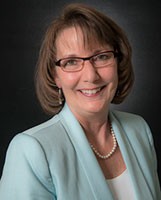Sally J. Cram, D.D.S.
1140 19th Street, NW Suite 410
Washington, DC 20036
Get Directions (202) 785-3021 dcperiodontist.com
One of Washington DC's top periodontists
specializing in dental implants for over 20 years.
Our mission is to provide you with the highest quality of periodontal and dental implant care in a warm and friendly environment.
Attending to your comfort and concerns is our first priority. During your initial appointment, you will be given a thorough examination. All of your options for treatment will then be fully explained. We want you to feel comfortable with your treatment before proceeding.
About Dr. Cram
Dr. Sally Cram attended Penn State University, where she pursued a major in Medical Technology, and then finished her Bachelor of Science degree in Biology at the William Smith College in Geneva, New York.
Dr. Cram then graduated with a Doctor of Dental Surgery degree from the Georgetown University School of Dentistry in 1986. While there, she became a member of the prestigious Omicron Kappa Upsilon Dental Honor Fraternity and was awarded the E. Wolfson Award for excellence in Four-handed dentistry, the William Brown Ingersoll Award in Endodontics and the American Association of Women Dentist Award.
After completing her Certificate in Periodontics at the University of Texas Health Science Center School of Dentistry in 1988, she began practicing as a periodontist. During this time, Dr. Cram also taught in the Department of Periodontics at Georgetown from 1988-1991 as an associate professor and again as an adjunct professor at the Northern Virginia Community College from 1998-2001.
An active member of the dental community, Dr. Cram has served on numerous boards serving as president, vice-president chair and spokesperson, among other leadership positions. She has also gone above and beyond in her training, receiving the high honor of Diplomate from the American Academy of Periodontology in 1994. This designation shows deep dedication to the field of periodontics and must be renewed with rigorous testing every six years.


